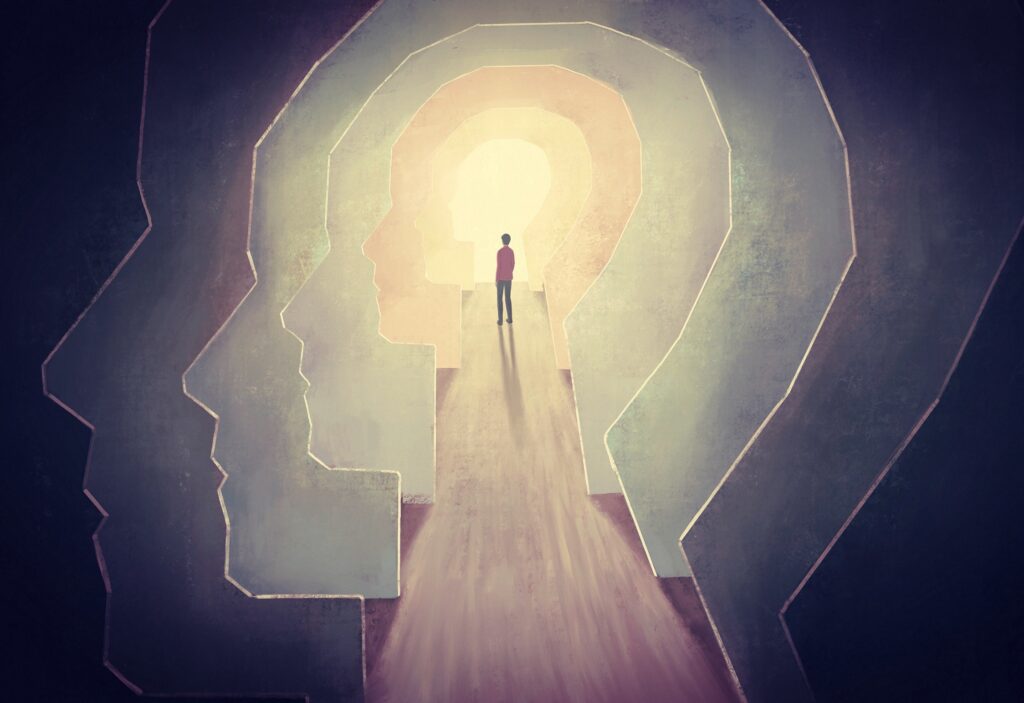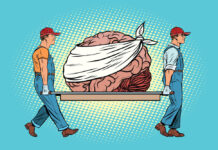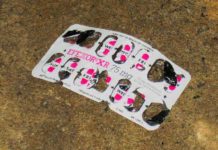During my university studies in cognitive science and neurobiology, during psychiatry classes when SSRIs were discussed, the instructor spoke about them with great passion and excitement. He presented the theory of disturbed biochemical balance and the beneficial effects of antidepressants on neurotransmitter regulation (at that time, this theory was still current; today we know it was merely a scientific-sounding marketing slogan).
As a young student struggling with shyness, I believed that these medications could be beneficial and help with social anxiety. After the classes, I scheduled an appointment with the lecturer, who was a psychiatrist.

The visit lasted about 20 minutes, and after a brief description of my issue, I left with a prescription for sertraline. After an adjustment period when the medication started working, I felt great, or at least I thought so. The social anxiety seemed to disappear, my thoughts slowed down, and I stopped worrying.
I remained in this state for a few years. I noticed side effects such as decreased libido, increased drowsiness, and sweating, but I didn’t pay much attention to them. Friends and family mentioned that I behaved differently at times, sometimes inappropriately, but I didn’t perceive it. It was only when my partner pointed out my lack of interest in sex and being emotionally distant that I, in consultation with my doctor, decided to discontinue the medication.
First discontinuation attempt
I discontinued sertraline during my final year of neurobiology studies. The doctor instructed me to stop abruptly, claiming it was safe. Initially, withdrawal symptoms were mainly physical—flu-like symptoms, sleep problems, appetite changes, and odd bodily sensations. After a few weeks, however, they transformed into something entirely new.
Gradually, I lost the ability to feel emotions, both positive and negative. Everything became indifferent, empty, I lost emotional capacity. I was chronically fatigued, unable to engage in any activities, from studying and listening to music to social interactions and sexual activity. My libido disappeared, and I lost sensation in my genitals. I felt alienated from my own body. Additionally, I became very nervous and irritable in a way I hadn’t experienced before. Suicidal thoughts emerged. Due to my severe condition, I had to stop writing my master’s thesis to save my health and life.
Concerned about my state, I sought help from a doctor who dismissed my concerns and suggested going back on the medication without much consideration. Desperate, I resumed taking sertraline. The symptoms slightly eased, but the medication’s effects were no longer the same, and new side effects emerged, including severe sexual dysfunction and akathisia.
Distressed by the situation, I looked for help online and found the Surviving Antidepressants forum, where I found out I wasn’t alone in such a state and what I experienced was a protracted withdrawal syndrome. I decided to try again and endure whatever awaited me after discontinuation.
Discontinuation of the medication
I discontinued the medication again, this time more slowly. What unfolded afterward is difficult to put into words—it was undoubtedly the worst period of my life.
For the first two years after discontinuation, I was unable to function independently. Most of the time, I lay in a state of severe depersonalization and numbness. My physical and emotional sensations were almost nonexistent. Suicidal thoughts plagued me daily, with one attempt. I frequently experienced neuro-emotions—disproportionate reactions to stimuli, often aggressive and out of context. I couldn’t form relationships or work. My sexuality ceased to exist. Engaging in any activity was impossible due to intense apathy. Cognitive functions were severely impaired, especially short-term memory and its consolidation process, making me feel like I had dementia. Derealization was a daily companion, and I felt this state would never end, that it was my new reality.
During this time, I relied on an online support group dedicated to medication withdrawal. I was one of the more skeptical users, questioning every recovery story, strongly convinced that these drugs caused permanent damage.
Over the following two years, I painfully and gradually learned to function again with my dysfunctions: faking emotions and forcing myself to be active despite feeling no satisfaction from anything. I also attempted to regain my health by experimenting mainly with diet and physical activity.
Healing over time
Fifth year post-discontinuation was a breakthrough period when I began experiencing what are known as ‘windows’ (recovery occurred in cycles of windows and waves). Initially, I attributed this to external factors, but over time, I noticed genuine improvement.
During this period, I placed significant emphasis on physical activity and dietary restrictions. I developed methods that were beneficial and supported the healing process, while also eliminating harmful factors that seemed to slow down my progress.
In 2024, there was significant improvement in all symptoms: cognitive functions improved (starting from a point where I couldn’t read), emotional functions and feelings returned, the zest for life came back, and I began to enjoy my sexuality again.
If not for determination and the desire to escape the hell that protracted withdrawal syndrome undoubtedly is, I probably wouldn’t be here today. This challenging experience taught me a lot about myself and gave me a new perspective on people and the struggles they face. Now I am transforming my years of suffering into something positive by helping others survive this difficult period and reclaim themselves.















Thank you for sharing your story of protracted drug withdrawal, Tomasz. Mine was quite similar, although in one way, sort of the opposite odd issue. I haven’t even been able to read through my journals from back then, because it was so tough to read for me – one of these days I’ll try again. God bless, and thank you for working to help get others off of psychiatry’s neurotoxins.
They didn’t “promise us a rose garden,” but they did promise to “first and foremost do no harm” … yet psychiatry did the opposite. It’s shameful.
Report comment
Fellow Surviving Antidepressants member: thank you for this succinct piece. Glad you are inspired to help others in this hell state. I too took several years after a similar experience to yours (cold turkey, reinstatement, years of crazy).
Report comment
That is terrible that you went through that. This has happened to way to many people. No one deserves to suffer like that
Report comment
If you want to avoid withdrawal symptoms, I recommend not pouring chemicals into your brain that derange and destroy normal seratonergic and dopamenergic activity. You don’t need psychiatric medicine when you have hallucinogens and magic mushrooms. Society says be careful – you might go mad. But it is too little that is the danger. Just have so much that your head explodes and your eyes go off snow boats under the multicoloured sea.
Report comment
Many people bought into the lies and fabrications of those who control the mental health industry. Everyone should have a little more sympathy for such people. They are all victims of a predatory and corrupt system that prioritizes profits and deception over truth and well being.
Report comment
I quite agree. Which is why we need to make loud and clear the truth about psychiatric drugs which is simultaneously a kind of economic scam carried out through a deceptive and bogus ‘mental health’ ideology, and at the same time is a form of instrumental social violence. It also has much more profound dimensions then that but less is more when it comes to explaining all of this I reckon.
Report comment
Thankyou for sharing your excruciating experience Tomasz and your journey to recovery.
I have a particular interest in the long term effects of SSRI’s, more so blunting and emotional detachment, and separately also have an elderly relative in ICU right now from critically low sodium, attributed to long term use of SSRI’s, but had not heard the term post-acute withdrawal syndrome. Thankyou for informing me. I wish you continued healing and wellness in life.
Report comment
Loved the article. I found Surviving Antidepressants too and they have been a life saver for the past two years. I’m finally at 50% of many meds I was given. My reductions are at thousandths of a gram so I don’t have a bad reaction. Your story gave me hope.
Report comment
I’m afraid this article itself is very ineffective as an antidepressant, as are all articles, essays, or anything else, including comments. The only thing that can hope not to depress in an age of ubiquitous destructive and diseased averageness is the eruption of true human honesty, and that is true from ANYONE. Now, CAN YOU DO THAT? Try it. Don’t write an essay – erupt with pure and true human honesty in every word you write, it doesn’t matter whether it be in this or that form. Radicalize everything you write because human honesty is the only linguistic force that bares any relation to human truth, the truth of what we are, which is not merely a human being but the whole of humanity itself and the world it created for itself. You and I are all that. This is a fact. So erupt with human honesty and watch the whole Universe erupt through you. Such eruptions transcend good and evil, life and death, being and nothingness.
Report comment
Off topic and odd. This man’s story is about protracted withdrawal from a prescription med – very effective, well written, and much appreciated.
Report comment
Thanks for your article, i have been subject to such problems multiple times in my life.
I found the best method during the harshest times is to protect myself by isolating me from society or at least the worst members of it, then it gets better.
Report comment
I feel terrible for anyone who is going through this. Doctors need to stop prescribing these drugs to people. There are way too many side effects and they can damage a person’s health severely. We are still living in the dark ages. Instead of lobotomizing people physically the mental health industry does it chemically. Nothing has changed.
Report comment
Thank you for sharing your experience. Five years is a long time and many people run out of patience and hope it will improve or don’t have a situation or support to continue to endure the withdrawal effects so end up with no options but reinstating these poisons.
Plus no mechanism or supplier to do micro reductions. There is actually no other word for them than poison. And yet if you state that the prescriber will be so offended.. Recent comment “that makes me so sad to hear u say these are bad drugs”. Again thank you for your story a clear reminder that despite everything thrown at it the brain can heal even if it takes a long time and much effort.
Report comment
Thank you for sharing your story Tomasz.
I think we may share a fascination with how and why this happens. By the way, its very cool you are now helping out and not leaving the scene.
The interesting thing is that your description of what you experienced is almost an exact match to what folks in my TMS harm group and ECT injury. There are some variations but we are all different biologically right?
What if I told you that principally those suffering from Chronic fatigue syndrome, Viral meningitis, Rheumatoid arthritis and others are suffering from primarily the same symptom set? Maybe they have a different chief complaint but if we count all the other complaints it was almost the same picture, and everyone is different and so the cause for everyone would be different to some degree.
What if the disease based model did not apply here and we were looking at neurological injury/agitation/ or dysfunction? It stands to reason after my 6 years of studying these things that the nervous system is the system that directs the immune system and all the others and if it gets agitated there is no system to fix it, so it has to fix itself – which ends up being a bit challenging, like fixing a plane or a car while its still running and moving – and is unlike any other paradigm of healing out there…
It also changes the game when it comes to getting better, we can possibly look at all those other “diseases” or injuries and see how they are getting better. Maybe?
I am really grateful to hear your story and am very interested by the windows and waves of recovery, I will be thinking about these thing for awhile.
Take good care of yourself!
Report comment
I took Cymbalta for pain for about 2 years. I stopped abruptly because I found out my doctor changed my nerve pain diagnosis to depression after I went on the Cymbalta. (She later admitted confusing me with my ex husband.) I knew she’d be no help in stopping the drug. I was in protracted withdrawals when COVID hit. I also have a fear of illness. But this worked in my favor as I could just lock down by myself with no questions. I focused entirely on self-care. Took me about 4 years to come back out the other side of the withdrawal nightmare. I will never take an antidepressant ever again, even though doctors love pushing them for everything.
Report comment
He stated that he began having windows in his fifth year following discontinuation, and that by 2024, he was experiencing significant improvements. How many years after his discontinuation was 2024?
Report comment
2024 is 6th year after my discontinuation 🙂
Report comment
Nice!
Report comment
Thank you for sharing your story!
Report comment
I have been a member of the PSSD community for many years and I feel it is only right to point out to those who do not know that many people have had the common experience of being contacted by him for questioning and then receiving his not only pessimistic, but toxic, harassing, repeated responses designed to induce despair, to the point of having the strong feeling that he was trying to encourage them to take their own lives. In addition to other behaviour including insults and returning with new nicknames. Because of these behaviours considered dangerous, there is a widespread consensus in most PSSD groups to be wary and to keep him at a distance.
Report comment
Unfortunately, it’s true. For many years, I was in a very bad place and couldn’t see any hope or improvement with PSSD/protracted withdrawal. I was very pesimistic/dooming and convinced that this condition is permament. Fortunatelly I was wrong. This only proves that things CAN get better! Thank you for reminding me of what I was dealing with. I’m keeping my fingers crossed that things will improve for you as well!
Report comment
Hi
I couldn’t seem to find your post on SA.
How could I find out about the dietary changes you made?
6 years out from an instant adverse reaction, looking for hope.
Report comment